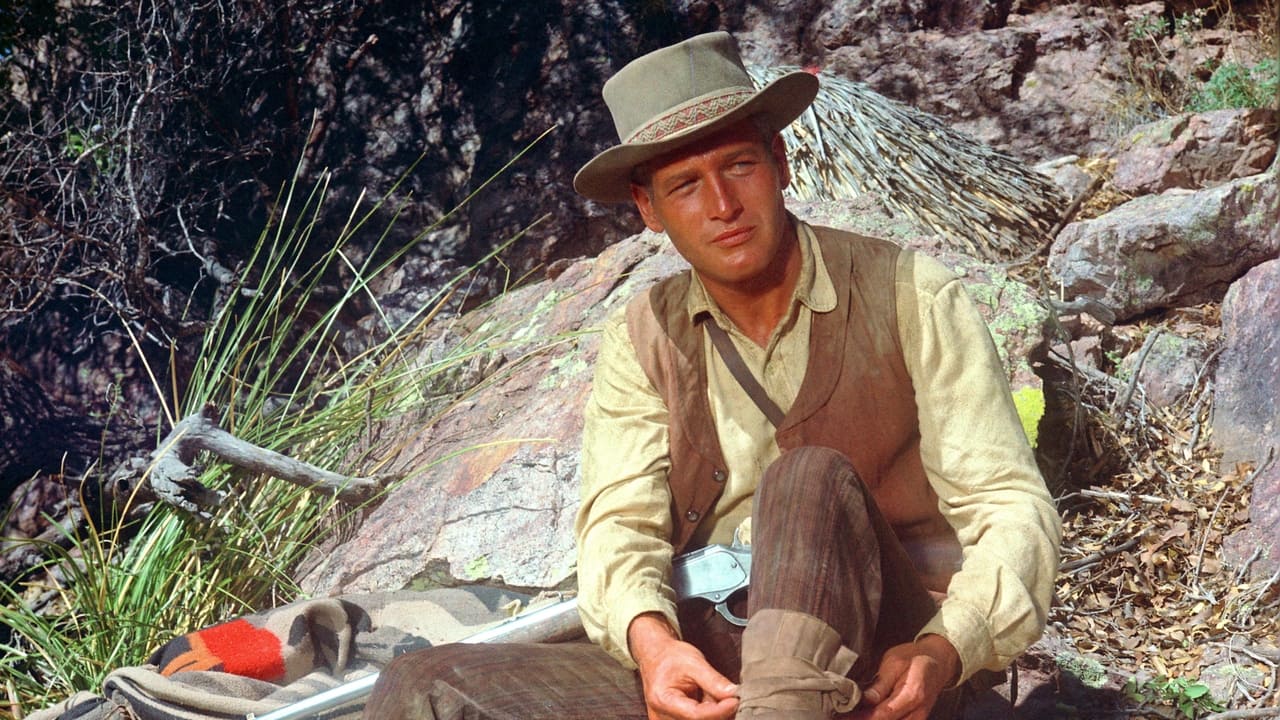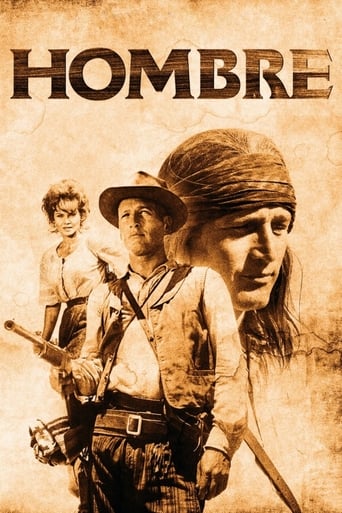



Wonderful character development!
Strictly average movie
one of my absolute favorites!
This is a small, humorous movie in some ways, but it has a huge heart. What a nice experience.
View MoreHOMBRE is a very good American western featuring Paul Newman, hot off Cool Hand Luke, in the title role. If Cool Hand Luke saw Newman at his deepest and most emotional, HOMBRE sees him playing a totally different part: ice cold, his feelings hidden beneath a tough and leathery old skin. He plays a white man raised on an Apache reservation and thus suffering the scorn of his fellows. He ends up taking a fateful trip on a stagecoach waylaid by bandits and must use his survival skills to help keep his fellow passengers alive.The film has a leisurely pace and a long set up, but everything works well here. Each character has a little story all of their own and the actors centre the roles well. Diane Cilento is particularly good as the damaged woman that Newman butts heads with, but the likes of Fredric March, Cameron Mitchell, and Martin Balsam don't disappoint either. Richard Boone is particularly imposing as the chief villain in the story, and the action is handled expertly with some great twists and turns along the way.
View MoreWith a rentals gross of $6.5 million, "Hombre" came in at 14th position at U.S./Canadian ticket-windows. The movie did not attract nearly as much attention overseas. When I saw it on original release, I wasn't overly impressed. To me, it came across as a small-scale version of "Stagecoach". On the big screen, Newman's performance seemed lethargic, and March's by contrast over-ripe. Diane Cilento was wasted in one those bad-little-woman-but- conscience-of-society roles. Only Richard Boone played with the right swagger. True, Cameron Mitchell seemed appropriately glum as a dispossessed sheriff, while Frank Silvera had some handsome moments as a grandstanding bandit.Seen recently in CinemaScope format on pay-TV, the film — for me at least — improved out of sight. The dialogue seemed tersely dramatic, providing lines that all the players (with the exception of Barbara Rush, whose somewhat mannered efforts undermine her unusual role) could get their lips around, whilst the action moved both pacey and picturesque as it moved towards its forceful climax.Jimmy Wong Howe's superb location cinematography, underlined by David Rose's atmospheric score, lent additional color and excitement. And thanks to striking natural locations, even Martin Ritt's direction seemed both vigorous and invigorating.A typically violent but suspenseful script originating from the percussive pen of cult novelist Elmore Leonard (the man who hates using adverbs in his writing because they slow down the action) and evocative acting in minor roles (the two Wards, Canary, Hernandez and Isbell) round out the many pluses for this highly suspenseful western.
View MoreThe subject and the story are commendable. A revisionist Western if there was one. Racism against the native Indians is highlighted. So are the negative traits of the white men who made money out of the subjugation of the the native Indians. Even the attitudes towards Mexicans are well etched.Ultimately, the film is all about values and humanism and less about killing.The opening sequence of the black stallion leading wild horses is amazing.Ritt is a director who was a cut above the rest, especially his films on anti-racism (Edge of the City, The Great White Hope). He chose his subjects well.Commendable performances (Newman, Boone and Balsam) and a good script.
View MoreDespite the ever present hotbed topic of racism, the film was a major disappointment to me as it is rather slow moving and the characters such as Richard Boone, Paul Newman and Fredric March are never allowed to develop fully.The one excellent performance here is by Diane Cilento as one of the passengers on the ill-fated stagecoach.Racism is not an underlying film here; rather, it is the definite theme. Kidnapped by Indians as a child and raised as their own, Paul Newman was eventually taken back by a man who gave him his name and upon the latter's death willed him his property.Seeing how the Indians have been mistreated has left an indelible mark on the Newman character and he faces bigotry on the coach for when his Indian past is discovered, the passengers no longer want to ride with him.The coach is summarily held up and the passengers must depend on Newman for their very survival.In a change of pace, Fredric March, one of the passengers, is an Indian agent traveling with his wife Barbara Rush and both show their nasty bigotry. Through the irony of the situation, Rush will also depend upon Newman in the end to survive.As always, Newman comes to grips with the situation and human decency propels him to save the Rush character, but at what cost?
View More